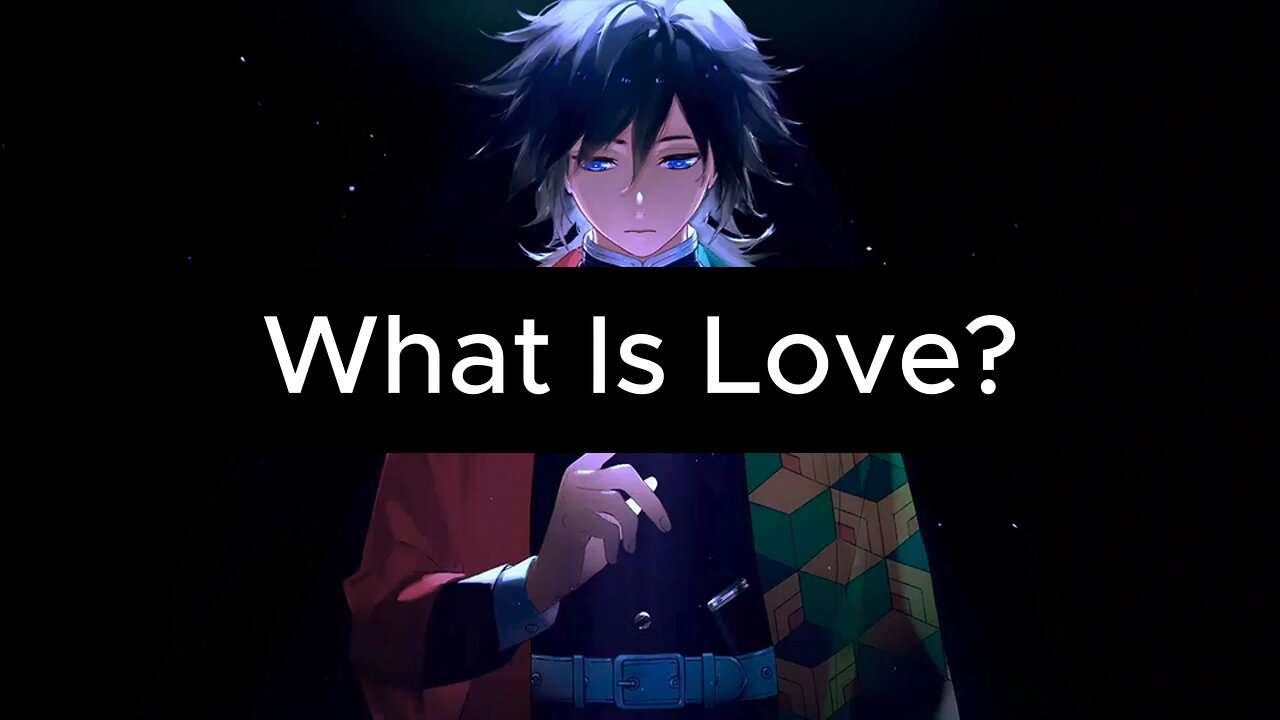Premium Only Content

What Is Love? Exploring the Multifaceted Nature of an Emotion
Love is a universal and complex emotion that has been a subject of contemplation, art, and scientific inquiry for centuries. It permeates human existence in myriad forms, from romantic love between partners to the unconditional love between parents and children, and the deep bonds of friendship. This video delves into the multifaceted nature of love, exploring its psychological, biological, and philosophical dimensions.
Defining Love
Defining love is a challenge, as it encompasses a wide spectrum of feelings, attitudes, and behaviors. Psychologically, love can be characterized by feelings of affection, attachment, care, and concern for another person. It often involves a deep sense of connection and an intrinsic desire to support and nurture the well-being of the loved one.
Types of Love
- Romantic Love: This form of love is characterized by intense emotions, physical attraction, and a deep sense of intimacy. It often leads to committed partnerships or romantic relationships.
- Familial Love: This includes the bond between parents and children, as well as among siblings. It is often characterized by a sense of responsibility, care, and mutual support.
- Platonic Love: This type of love is non-romantic and non-sexual, often seen in close friendships. It is characterized by deep emotional connection and genuine concern for each other's well-being.
- Self-Love: This is a crucial form of love, which involves valuing and caring for oneself. It is the foundation for healthy relationships with others.
- Agape Love: Often associated with spiritual or religious contexts, agape is selfless, unconditional love that transcends individual needs and desires. It is characterized by an altruistic concern for the well-being of others.
The Neuroscience of Love
Research in neuroscience has shed light on the biological underpinnings of love. The release of neurochemicals such as oxytocin, dopamine, and serotonin play a significant role in creating feelings of attachment and pleasure associated with love. Oxytocin, often referred to as the "love hormone" or "bonding hormone," is particularly important in forming and maintaining social connections.
The Evolutionary Significance of Love
Evolutionary psychology suggests that love has adaptive value. The formation of strong social bonds, especially between parents and children, contributes to the survival and well-being of offspring. Similarly, romantic love may have evolved to facilitate pair bonding, which enhances the likelihood of successful reproduction and child-rearing.
Love and Well-Being
Numerous studies have highlighted the positive impact of love on mental and physical health. Being in loving relationships can lead to reduced stress, improved mood, and increased overall life satisfaction. Social support, which is often a product of love and connectedness, has been shown to enhance resilience in the face of challenges.
Challenges and Vulnerabilities in Love
While love brings immense joy and fulfillment, it is not without its challenges. Relationships can face difficulties, conflicts, and even heartbreak. Navigating these complexities requires effective communication, empathy, and the willingness to work through differences.
In Closing
Love is a profound and essential aspect of the human experience. It manifests in various forms and plays a crucial role in our well-being and sense of belonging. Understanding the psychological, biological, and philosophical dimensions of love enriches our appreciation for this intricate emotion and provides insight into how it shapes our lives. Embracing and nurturing love in its many forms ultimately contributes to our personal growth and the betterment of society as a whole.
#asmr #anime #love #vlog
Credit: Video by 21515301 from Pixabay
-
 LIVE
LIVE
LFA TV
22 hours agoLFA TV ALL DAY STREAM - MONDAY 8/25/25
1,330 watching -
 LIVE
LIVE
freecastle
6 hours agoTAKE UP YOUR CROSS- PROTECTING FREEDOM, PRESERVING HOPE!
191 watching -
 1:17:44
1:17:44
The HotSeat
2 hours agoTrump Drops Hammer: Burn the Flag = 1 Year Prison! Army Deployment Next?!
17.7K16 -
 1:30:12
1:30:12
Jamie Kennedy
20 hours agoThe Truth About Anger, Race, & Feminine Energy w/ Jesse Lee Peterson | Ep 219 HTBITY
14.1K2 -
 1:45:39
1:45:39
The Quartering
7 hours agoMMA Fighter Tries To K*LL Wrestler, Hollywood PANIC & Sam Tripoli's Favorite Conspiracies
147K161 -
 1:05:04
1:05:04
Mark Kaye
5 hours ago🔴 Trump Sends Dems Into RAGE Over Flag Burning Executive Order
21.4K20 -
 LIVE
LIVE
Film Threat
19 hours agoVERSUS: AUGUST BOX OFFICE BLOOD BATH! MARVEL IS COOKED! | Film Threat Versus
94 watching -
![[Ep 734] Leftists Support of Black-on-Black Crime | Bolton Raid / Media Hypocrisy](https://1a-1791.com/video/fww1/0e/s8/1/a/F/p/c/aFpcz.0kob-small-Ep-734-Leftists-Support-of-.jpg) LIVE
LIVE
The Nunn Report - w/ Dan Nunn
2 hours ago[Ep 734] Leftists Support of Black-on-Black Crime | Bolton Raid / Media Hypocrisy
166 watching -
 29:39
29:39
Afshin Rattansi's Going Underground
1 day agoEx-Israeli PM Ehud Olmert: INTOLERABLE Amount of Innocent Palestinians Have Been Killed in Gaza
20.2K29 -
 7:49
7:49
Dr. Nick Zyrowski
6 months agoVitamin D is Dangerous? Get The TRUTH!
16.6K12